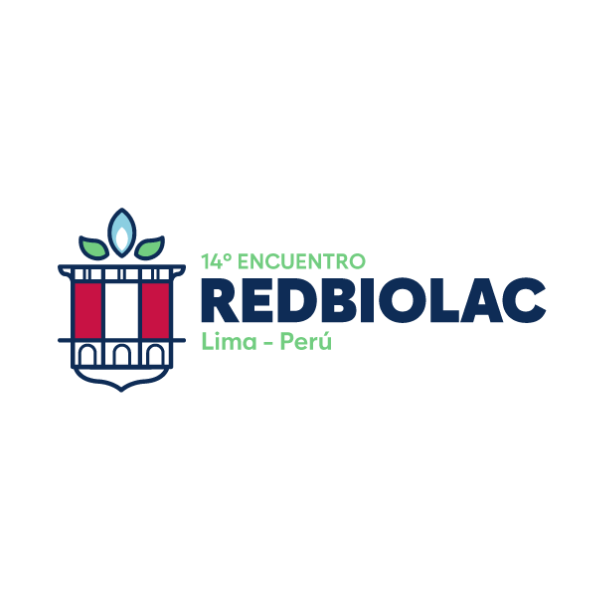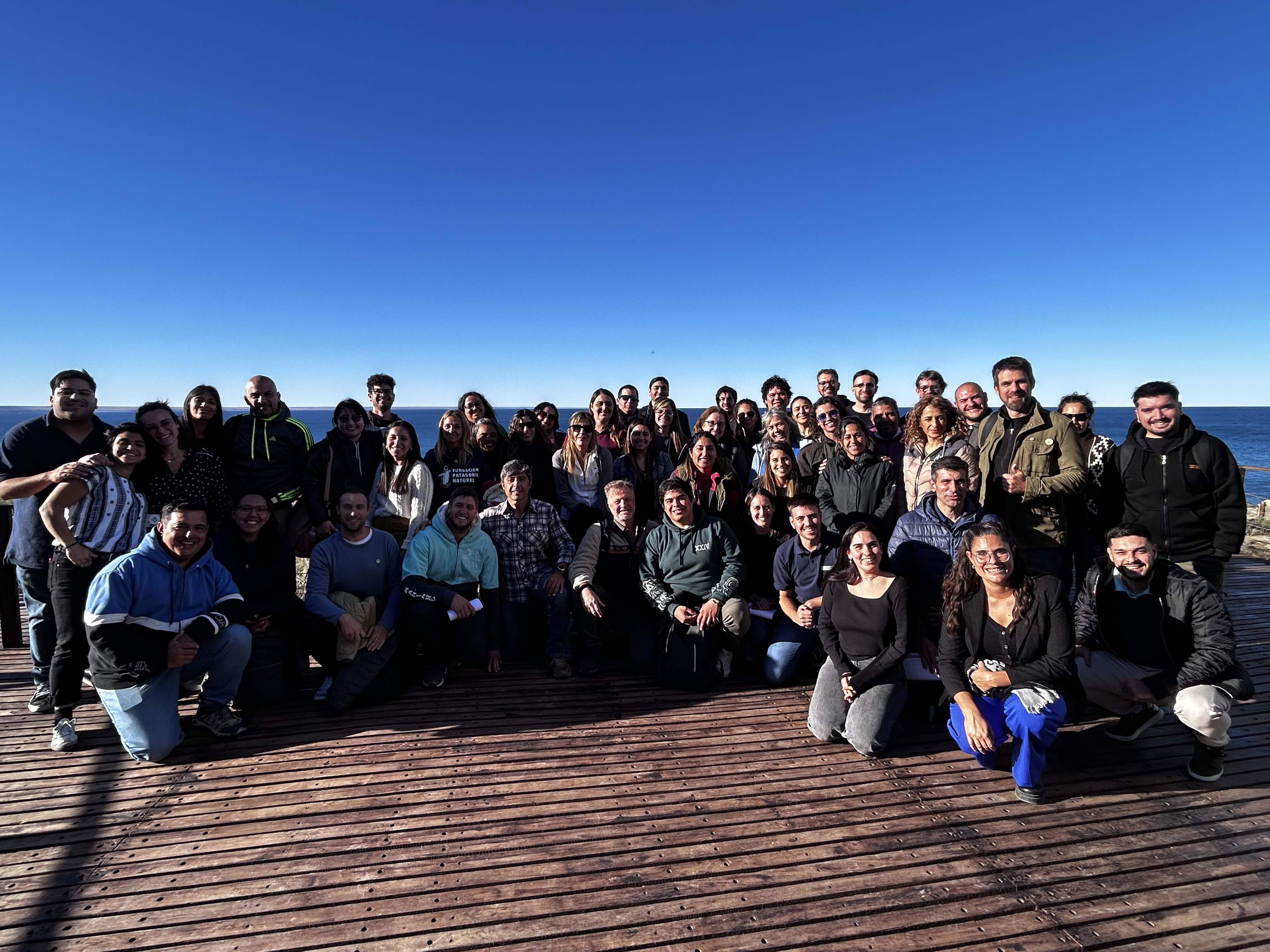More than 45 teachers from 15 schools in Chubut Province, Argentina, participated in the first training to launch our newest capacity building partnership: the YouthEnergy project.
Successful 14th Encuentro by RedBioLAC
In November this year, Peru had the honor of hosting the 14th Encuentro, which is the annual meeting of our partner network RedBioLAC. Through this event it is hoped to empower people and communities in Latin America and the Caribbean to sustainably transform their energy production and use.
A series of activities led by both national and international experts took place from 21 to 25 November 2022 in the city of Lima. Sponsored by WISIONS of Sustainability, and organized in cooperation with the Universidad Nacional Agraria La Molina (UNLAM), interactive courses, a technical tour and a Congress took place at the UNLAM facilities.
The aim was to share knowledge about the use of biodigesters as a sustainable alternative in the bioeconomy. Invited experts shared their insights on applied research and on the dissemination of anaerobic digestion to stimulate the integrated management of organic waste. Around 300 participants were able to attend the meeting both in person and via streaming.
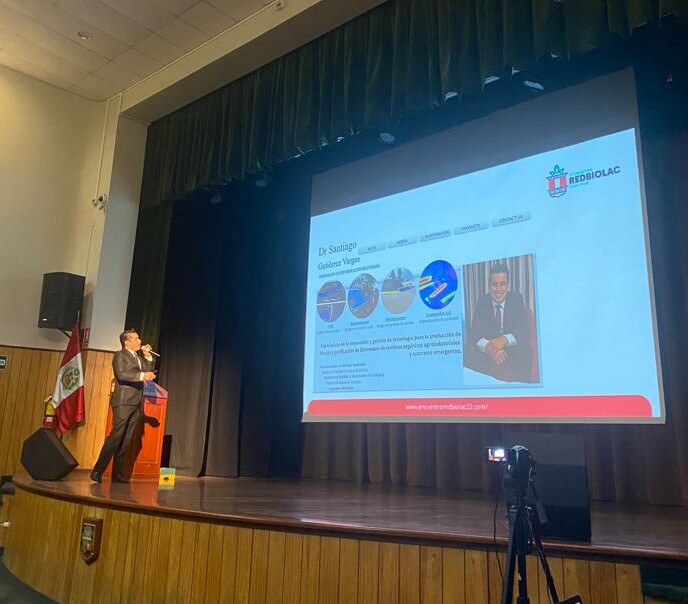
photo: RedBioLAC
On the first two days, a series of interactive courses were held on how biodigesters can be applied both domestically and on a wider scale, as well as on the functioning of anaerobic digestion.
Halfway through the event, a technical tour was conducted at the Fundo Bioagricultura Casa Blanca, which is a center for agro-ecological production, training and research and agro-ecotourism. Through this experience, participants were able to learn how biodigesters can have a positive impact on rural communities by generating thermal and electrical energy and producing bio-fertilizer for crops.
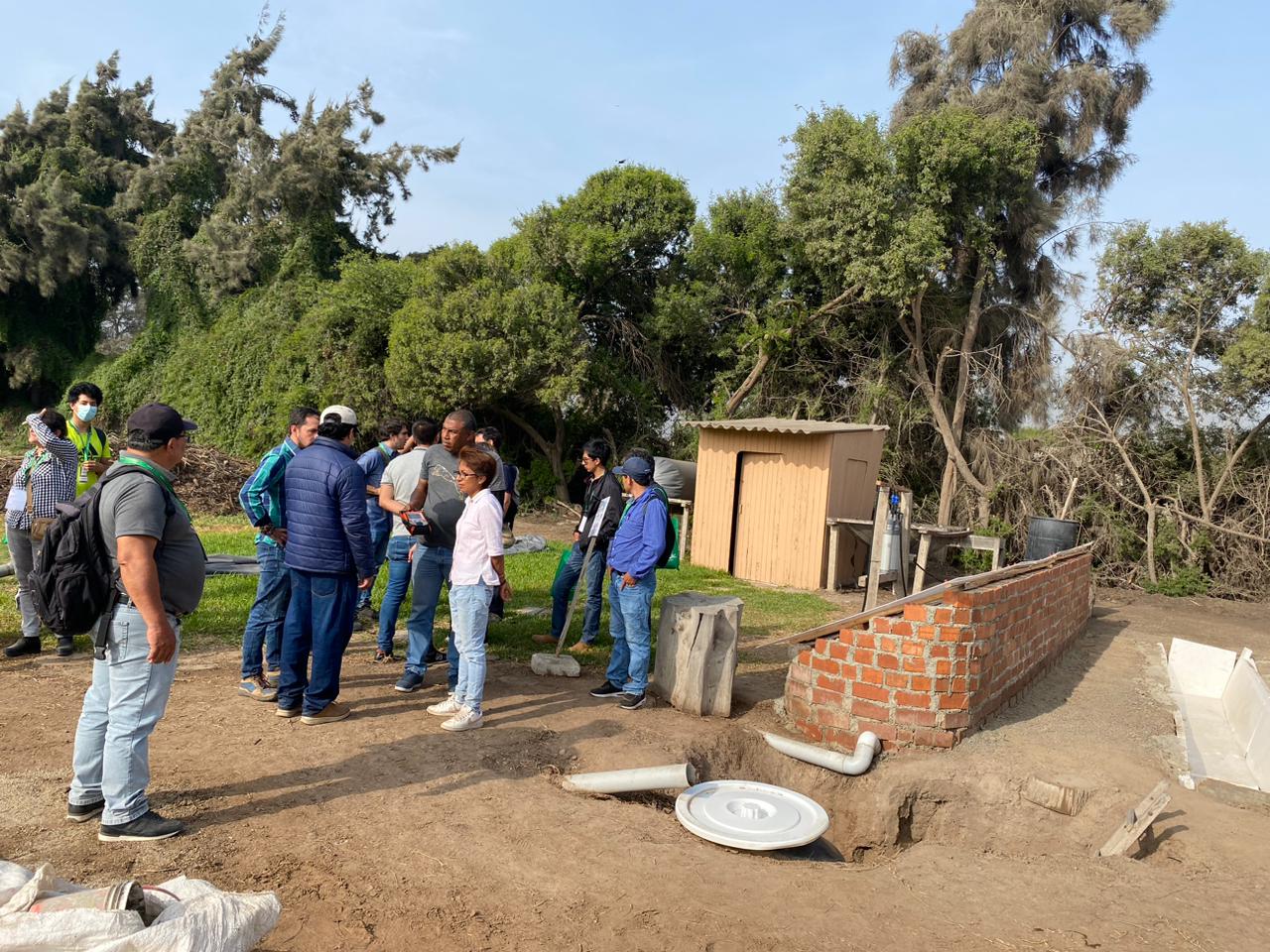
photo: RedBioLAC
A Congress concluded the last day of the Encuentro in which different topics were discussed by speakers from Peru, Austria, Spain, Brazil, Colombia, Mexico and Costa Rica. It featured keynote presentations on biogas and biomethane as sustainable energy alternatives.
The potential for decarbonisation from biodigestion was also discussed. Ultimately, related topics such as anaerobic co-digestion with its challenges and opportunities, as well as carbon credits were addressed.
One of the main takeaways from this event was the fluidity with which ideas and knowledge were exchanged between experts and participants, who did not hesitate to voice their questions and actively participate in the debates.
There was a great deal of agreement regarding the future of biodigesters: it is essential that public authorities and decision-makers – at local, regional and national level – get involved in the search for solutions to the problem of sustainable energy production and use.
If you are interested in learning more about the activities that took place at the event and their outcomes, please visit the website of the 14th RedBioLAC Encuentro.
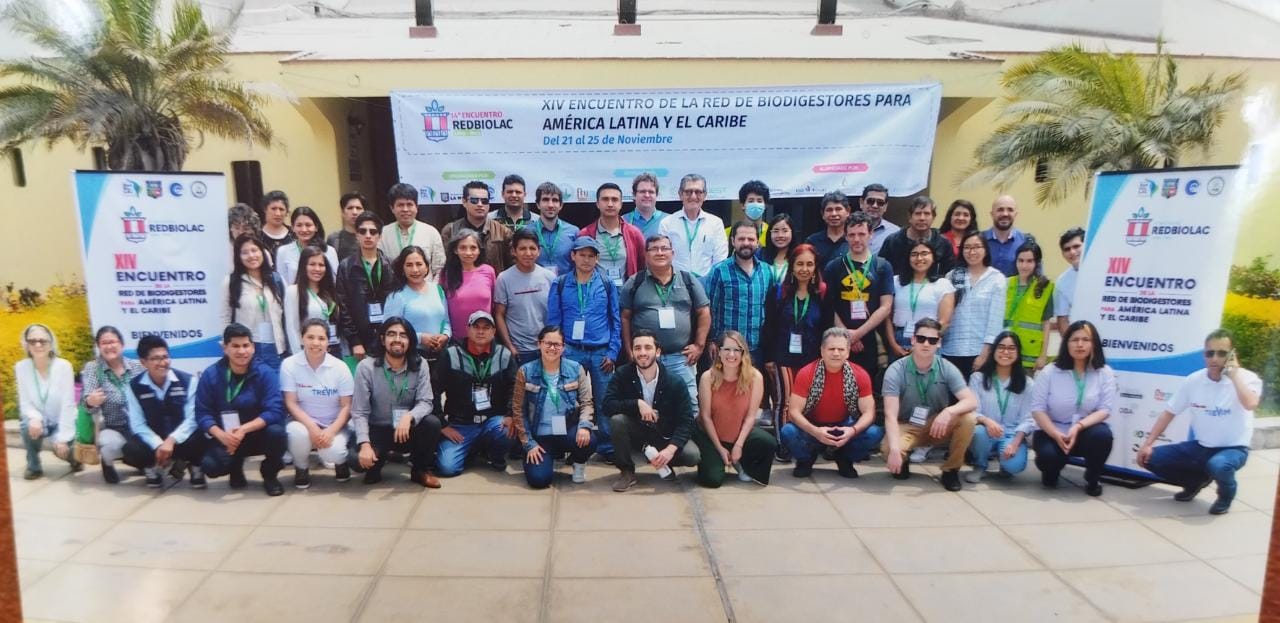
photo: RedBioLAC
